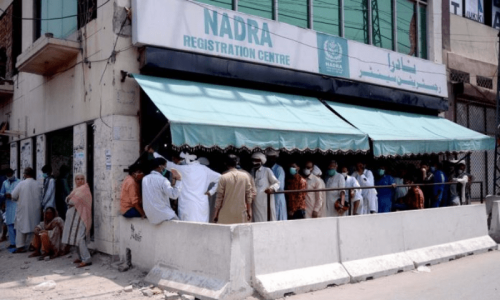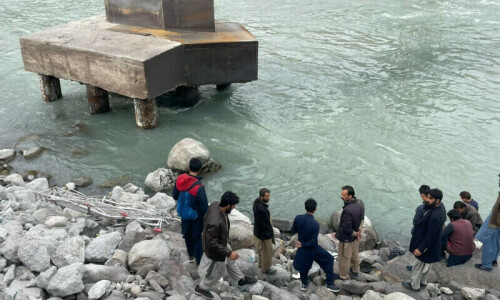ISLAMABAD, May 16: The World Bank (WB) on Friday stressed the need for greater investment in agriculture sector in Pakistan, a country where wheat and rice prices are hitting the pocketbooks of poorest citizens and high energy prices and increased water scarcity are squeezing the farmers.
Drawing from the “World Development Report 2008: Agriculture for Development” some leading agriculture experts of the WB have asked for increased investment in the agriculture of Asian countries including Pakistan, a region that houses over 600 million rural poor.
The report says over the past 20 years, agriculture in these developing countries has suffered a lot. Now, it warns, that the Millennium Development Goal (MDG) of halving extreme poverty by 2015 will not be met unless the governments in developing countries and the international community reverse the trend of underinvestment in agriculture and rural sectors.
In emerging countries such as Pakistan, India, China and Morocco, agriculture contributed an average 7 per cent to the Gross Domestic Product (GDP) between 1995 and 2005, though the sector accounts for 13 per cent of the economy and employs just over half the labour force.
The WB report says in many countries, slow growth in agriculture sector coupled with a rapidly growing non-agriculture sector has widened rural-urban income gaps creating social and economic tensions.
On the other hand, rapid growth of urban incomes and demand for higher-value products also provide significant opportunities for faster agriculture growth and poverty reduction in these countries.
Yusupha Crooks, WB’s Country Director for Pakistan has stressed the relevance of the report for Pakistan. He said during the last one year, Pakistan had witnessed unprecedented increase in prices of key food commodities, which have profound effects on poor and vulnerable people.
“There is an urgent need for increased agriculture productivity and effective safety net programmes to overcome these problems,” Mr Crooks said.
He said the WB was committed to increasing its support for Pakistan’s agriculture and rural development following decline in lending in 1980s and 1990s.
The report says the growth originating in agriculture is four times more effective in reducing poverty than the growth coming from non-agriculture sectors. It recommends that in the emerging countries, the agricultural agenda should focus on reducing disparity between rural and urban incomes and raising the income of the rural poor.
“A dynamic ‘agriculture for development agenda’ can benefit the estimated 900million rural people in the developing world who lives on less than a $1 a day, most of whom are engaged in agriculture,” B. Zoellick, WB Group President said.
He asked countries to cut distorting subsidies and open their markets. He said the civil society and farmers’ organisations should have more say in the “agriculture for development agenda”.
Derek Byerlee, the principal co-author of the report, has pointed out that low agriculture productivity, unequal distribution of land and access to water, inadequate infrastructure and poor public services delivery are among the key constraints hampering more rapid growth of agriculture sector in Pakistan. Increasing water scarcity, which is expected to worsen with climate change in the face of increasing demand for water, was another major concern.












































Dear visitor, the comments section is undergoing an overhaul and will return soon.